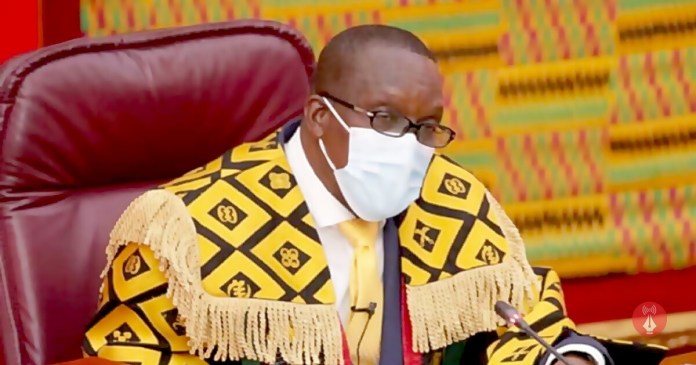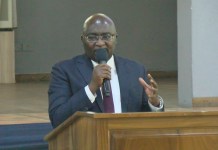President Akufo-Addo has reversed an earlier decision to cap the budgets of the legislature and the judiciary.
Today, Speaker of Parliament, Alban Bagbin, who had indicated Parliament would frustrate future budgets if the capping is not reversed, announced the reversal on the floor of the House.
“For the estimates of expenditure for Parliament and the parliamentary services, this is what we submitted, compensation was ¢201,112,086; goods and services ¢205,027,688; administrative and operational expenses at ¢406,139,774; capital expenditure (Capex) is ¢177,346,911. So the grand total is ¢583, 486, 685, ″ the Speaker said.
“…What is proposed for CAPEX is GH¢117,500,000, and so instead of the GH¢583,486,685 submitted by Parliament and Parliamentary Service, what has been recommended by his Excellency the President is GH¢523,639,774.”
For the Judiciary, the Speaker said, “Government has recommended that the Judiciary should operate for the year 2021 within the ceiling of ¢437,397,064. I want to urge the Judiciary Committee to be guided by the recommendations of the President.”
President Akufo-Addo had followed the review with a letter pleading with Parliament and the Judiciary to let their spending be within the adjusted budget as the government cannot accommodate any extra spending.
Earlier, the Presidency had been brash about capping the budgets of the Judiciary and the Legislature. Executive Secretary to the President, Nana Asante Bediatuo proposed a ¢77 million slash in budget estimates of the Judiciary and a ¢119 million from that of the legislature.
While doing this to the legislature and the judiciary, the Presidency had asked for more than GHC1.5billion to be allocated to it.
Hon. Alban Bagbin who had been incensed about the move had reminded the Executive that the legislature and the Judiciary were not inferior to the Executive, but co-equals.
The Speaker had also indicated that if the situation was not reversed, Parliament would not approve the Budget.
“The Budget is not for the Executive, we have the final power to approve and so what the Constitution has done is for them to make a recommendation and to negotiate during the deliberation before the House”.
Even though the budget had later been approved by a majority vote, the threat from the Speaker implied that in the future government could be punished.

















